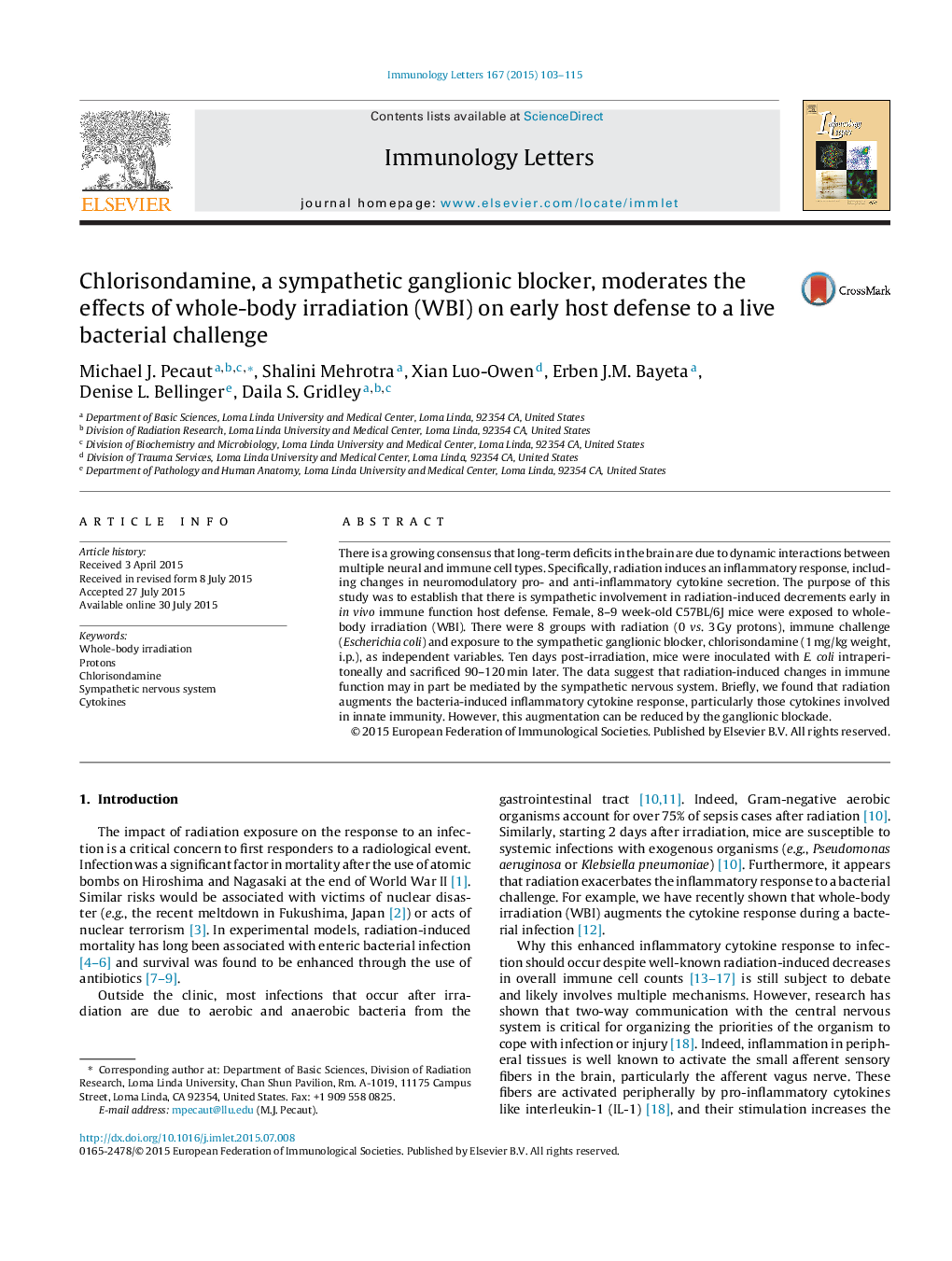| کد مقاله | کد نشریه | سال انتشار | مقاله انگلیسی | نسخه تمام متن |
|---|---|---|---|---|
| 6117110 | 1217165 | 2015 | 13 صفحه PDF | دانلود رایگان |
عنوان انگلیسی مقاله ISI
Chlorisondamine, a sympathetic ganglionic blocker, moderates the effects of whole-body irradiation (WBI) on early host defense to a live bacterial challenge
دانلود مقاله + سفارش ترجمه
دانلود مقاله ISI انگلیسی
رایگان برای ایرانیان
کلمات کلیدی
موضوعات مرتبط
علوم زیستی و بیوفناوری
ایمنی شناسی و میکروب شناسی
ایمونولوژی
پیش نمایش صفحه اول مقاله

چکیده انگلیسی
There is a growing consensus that long-term deficits in the brain are due to dynamic interactions between multiple neural and immune cell types. Specifically, radiation induces an inflammatory response, including changes in neuromodulatory pro- and anti-inflammatory cytokine secretion. The purpose of this study was to establish that there is sympathetic involvement in radiation-induced decrements early in in vivo immune function host defense. Female, 8-9 week-old C57BL/6J mice were exposed to whole-body irradiation (WBI). There were 8 groups with radiation (0 vs. 3Â Gy protons), immune challenge (Escherichia coli) and exposure to the sympathetic ganglionic blocker, chlorisondamine (1Â mg/kg weight, i.p.), as independent variables. Ten days post-irradiation, mice were inoculated with E. coli intraperitoneally and sacrificed 90-120Â min later. The data suggest that radiation-induced changes in immune function may in part be mediated by the sympathetic nervous system. Briefly, we found that radiation augments the bacteria-induced inflammatory cytokine response, particularly those cytokines involved in innate immunity. However, this augmentation can be reduced by the ganglionic blockade.
ناشر
Database: Elsevier - ScienceDirect (ساینس دایرکت)
Journal: Immunology Letters - Volume 167, Issue 2, October 2015, Pages 103-115
Journal: Immunology Letters - Volume 167, Issue 2, October 2015, Pages 103-115
نویسندگان
Michael J. Pecaut, Shalini Mehrotra, Xian Luo-Owen, Erben J.M. Bayeta, Denise L. Bellinger, Daila S. Gridley,